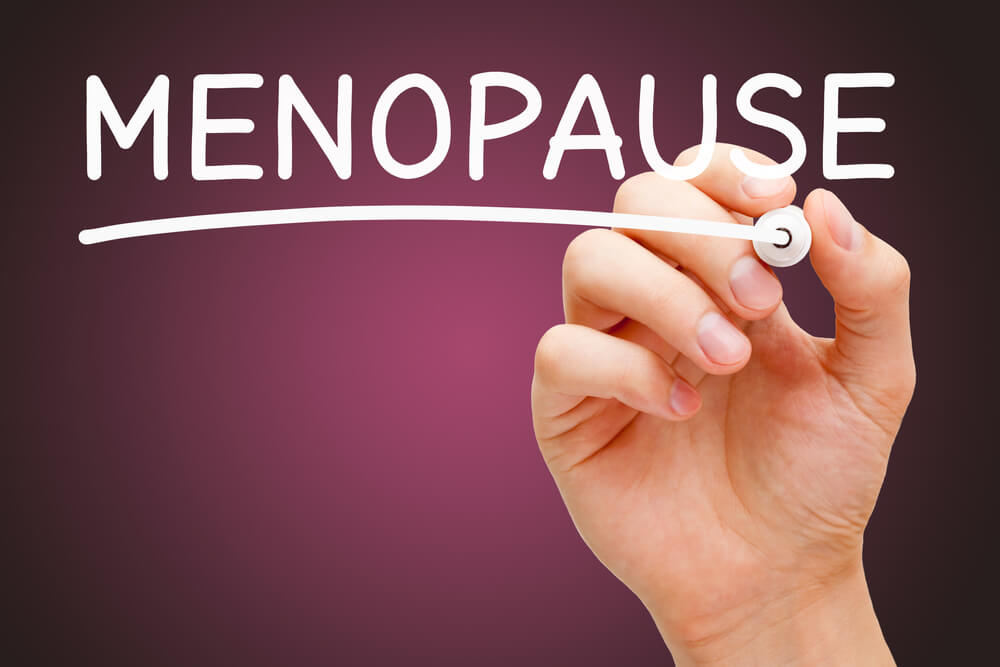Early menopause or premature menopause refers to a condition where a woman goes through the processes associated with menopause at a younger age than usually expected.
Menopause, as you may know, refers to a stage in a woman’s life when her menstrual cycles end. Natural menopause sets in somewhere around 50 when a woman has gone for an entire year without getting their period.
In this article, our experts in obstetrics and gynecology in South Miami, Florida, have prepared a comprehensive guide that discusses the signs of premature menopause and the risks that may trigger this premature onset. Also, we’ll go over premature menopause treatment options.
Premature Menopause vs. Early Menopuase
Even though the two terms are sometimes used interchangeably, and they both describe pretty much the same, early menopause and premature menopause differ in when they happen.
Morse specifically:
- Early menopause happens when menopause takes place before a woman reaches 45.
- Premature menopause, on the other hand, is when menopause occurs before a woman reaches 40.
Also, it’s vital to note that premature ovarian failure shouldn’t be confused with premature menopause or POI (primary ovarian insufficiency). POI refers to a condition where a woman’s periods end spontaneously and suddenly, prematurely or early, but with POI, there’s a chance that the periods return. Also, patients with POI may still ovulate, get periods and/or become pregnant. In the case of premature or early menopause, patients don’t menstruate, ovulate, and can’t get pregnant.
Earliest Ages for Premature Menopause
Premature menopause may occur in people in their 20s and 30s as well. As discussed above, premature menopuase refers to the onset of menopuase before a woman reaches 40, but it’s rare for menopause to happen before a woman turns 30.
As a matter of fact, only about 5% of women experience early menopause, and only around 1% of women go through premature menopause. It’s even rarer to experience menopause at the age of twenty-something, as only 0.1% of women will have to deal with this.
Signs of Premature Menopause and Its Causes

For the most part, the causes of early menopuase or premature menopause are the same. In some cases, certain health conditions, surgery, or cancer treatment may all trigger untimely symptoms, while in others, the causes and risks of early menopause are unknown.
Experts agree that anything that can cause damage to the ovaries or interferes with estrogen production may trigger the onset of menopause.
Below are some of the most common causes of premature or early menopause:
- Radiation therapy or chemo to treat malignancies
- Surgery that removes the ovaries
- Uterine removal (a surgical procedure called a hysterectomy)
- A family history of early or premature menopause
- Getting your first period early (before the age of 11)
- Turner’s syndrome, Fragile X, or other chromosomal abnormalities
- Crohn’s disease, rheumatoid arthritis, thyroid disease, or other autoimmune conditions
- Tobacco use
- AIDS and HIV
- Mumps and other infections
- ME/CFS or myalgic encephalopathy/chronic fatigue syndrome
When talking about the signs of premature menopause, women may experience irregular menstrual cycles for a few years, with shorter or longer cycles, changes in vaginal bleeding, and spotting. These are often the first symptoms of the condition.
Other signs of premature menopuase (or early menopause) can include other symptoms that are typically associated with menopause, such as:
- Night sweats
- Hot flashes
- Frequent urge to urinate
- Vaginal dryness
- Discomfort during sex
- Frequent UTIs or urinary tract infections
- Insomnia
- Dry eyes, mouth, or skin
- Emotional changes
- Racing heart
- Breast tenderness
- Headaches
- Muscle and joint pain
- Sex drive changes
- Being more forgetful, having difficulty concentrating
- Hair loss
- Gaining or losing weight
Diagnosing Early or Premature Menopuase
If patients start experiencing menopause symptoms before they turn 45, their healthcare provider will recommend several tests and ask a series of questions to establish a definitive diagnosis.
The diagnosis process may include the following:
- The doctor may ask you questions about the regularity of your periods
- Ask about your family history regarding menopause
- Perform a physical exam
- Order a blood test to examine your hormone levels
- Look for other medical conditions that may be producing your symptoms, like thyroid issues
Early and Premature Menopause Treatment
The best premature menopause treatment method will most probably vary depending on why the condition has started earlier than it typically should. In some cases, healthcare providers may recommend starting HRT or hormone replacement therapy unless there’s a reason that this treatment method is deemed unsafe.
HRT aims to replace the lost hormones in the body, helping fight the side effects and symptoms of menopause, and will also decrease the risk of developing other health conditions that can be caused by premature or early menopause. HRT may be prescribed until the patient turns 51, which is the time when most women will reach menopuase.
It’s crucial to discuss the advantages and possible drawbacks of HRT with your provider. When dealing with infertility due to premature or early menopause, consult with a fertility specialist to see your options for becoming a parent if you plan to have a family.
Unfortunately, premature menopause treatment can’t reverse menopuase itself and restore normal ovarian function. Still, providers can help reduce the side effects and symptoms of menopuase. On the other hand, if you have POI, there’s still a possibility that your ovaries will regain function.
Prevention
For the most part, the causes of premature menopause are beyond the patient’s control. Eliminating tobacco use is the only lifestyle change you can utilize to decrease your risks, but cancer treatments, surgeries, and other health conditions are often unpreventable.
The Risks of Early Menopause

Those who go through menopause early usually experience more severe menopuase symptoms, which can lead to a loss of intimacy or sexual dysfunction.
Furthermore, these patients will also spend more years without estrogen, which puts them at a greater risk for specific medical problems, such as:
- Heart disease
- Osteoporosis
- Depression
- Parkinson’s disease and dementia
Conclusion
Early and premature menopuase both describe an earlier onset of menopuase than it’s typically expected. For the most part, women reach menopause in their fifties, around the age of 51. In the case of premature menopause, this can happen before a woman turns 40.
If you are under 45 and starting to experience some of the signs associated with menopause, like hot flashes, night sweats, vaginal dryness, spotting between periods, and irregular menstrual cycles, consult with your healthcare provider. They will order blood work tests and perform a series of other exams to diagnose your condition.
Remember, there is a treatment to ease your symptoms and get relief from the unpleasant menopausal side effects.
Are you looking for options regarding menopause care and treatment in South Miami, Florida? In that case, you can always count on our skilled, knowledgeable, and compassionate staff to always strive to help the patients feel comfortable and live full lives regardless of their condition.


